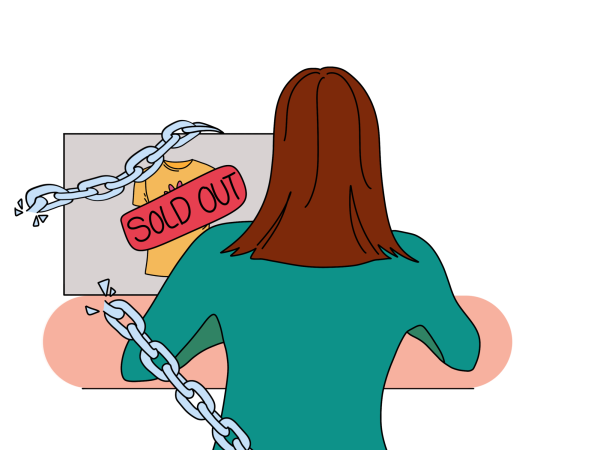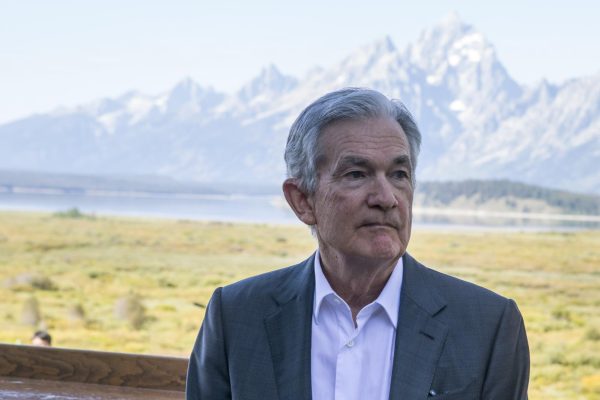America’s Big Debt Problem
America has a big problem, and it’s getting bigger with each passing day — not a historically unfamiliar or abstract problem, but one well-studied as a destroyer of great nations; even great republics similar to ours have crumbled before its corrosive weight. And as much as we read about its pernicious footprint in history books, or about the current calamity it spurs overseas in the morning papers, our political class chooses to cast a blind eye to its growing manifestations at home. This growing leviathan, which threatens the very existence of the American experiment and the way of life it promises, is colloquially known as the national debt.
Although now largely absent from the attention of the national media and congressional discourse, the national debt continues to multiply at an ever faster speed to ever larger heights. The U.S Treasury Department reported that our national debt — known in more technical terms as either federal debt or sovereign debt — surpassed $30 trillion in February. According to the Federal Reserve’s latest quarterly fiscal report, our total debt to gross development product ratio, which measures the size of our debt relative to the size of the overall economy, stands at 123% — an all-time high that exceeds even the ratio we had amid both the Great Depression and the Second World War.
Perhaps the most insidious aspect about this form of mushrooming debt is that its most pressing symptoms are present only during the terminal segment of the long-term debt cycle. In other words, sovereign debt functions like a slowly metastasizing cancer, where the physical pain is not felt when the disease is easiest to treat; the later the treatment begins, the worse the side effects and ultimate prognosis are. Shrinking our debt now, before it becomes politically and economically inoperable, is necessary to safeguard the financial soundness of our future.
Failure to do so would spell disaster for the future of the country. Increased deficits lead to increased costs of borrowing, as increases in the money supply — which arise when the U.S. treasury prints money to finance deficits — lead to higher levels of inflation. Thereafter, higher rates of inflation lead to higher interest rates, and higher interest rates lead to higher costs when it comes to servicing said debt. Then, before we know it, we will have lost sovereignty over our own economy and currency. In the worst case scenario, the U.S. could fall into a debt spiral — resulting in economic misery similar to what Venezuela and Zimbabwe have experienced recently.
Zimbabwe’s debt crisis resulted in full-blown hyperinflation, with prices rising so quickly and greatly in 2008 to the point where “they wiped out the wealth of citizens and set the country back more than a half century,” according to a research note published by the Dallas Federal Reserve. The Dallas Federal Reserve observed the same phenomenon more recently, in Venezuela, where the petroleum reliant economy cratered as oil prices fell in 2016 and 2017, resulting in a fiscal crisis where Venezuela could no longer meet its debt obligations to external creditors; hyperinflation quickly followed as a full-blown humanitarian and political crisis set in. Precipitating both disasters was the same recklessness that the U.S. exhibits today by purchasing everything with a credit card.
Those who object to this argument often rely on a logical fallacy: they say that because there have been no consequences to our accumulation of debt so far, there will be no consequences in the future. There is some rational basis for this argument, as the U.S. can go further than most other countries, like Venezuela and Zimbabwe, when it comes to financing their debts. We can get away with borrowing more money because of the strength of our economy, our military prowess and our strong rule of law — all of which assure our creditors that our U.S. will honor our commitments to borrowers and not default on our debts.
Perhaps the greatest factor which lends credibility to the U.S.’ reputation as the most secure sovereign debtor is the U.S. dollar’s status as the world reserve currency — which was affirmed by the Bretton Woods Agreement in 1944. Sovereign countries and premier financial institutions hold the U.S. dollar in reserve, as the internationally accepted exemplar currency, in order to back the value of their own currencies and to ensure smooth monetary transactions. Some countries even go as far as using the U.S dollar as their own official currency. Because of this, there is a strong appetite for dollar-backed treasury bills, which are debt vehicles sold by the U.S treasury to raise funds. This constant stream of treasury bill purchases from the international community gives the U.S. leeway to spend excessively beyond its means.
Politically, the U.S. is also able to weaponize the dollar if it chooses to do so, largely due to its status as the leading currency in the world. Because state and private financial institutions hold so many dollars and often settle their transactions in U.S dollars, the U.S. has the capability to cripple their ability to do business by levying restrictions on their usage of dollars. Our control of the dollar gives us broad power over anyone who holds or uses it. And we are certainly not shy about using it.
But we must not get complacent with our privileges. History has shown that nations can lose world reserve status for their currencies, and they lose them because nations borrow above their weight. Ray Dalio’s book, Principles for Navigating Big Debt Crises, identifies the origins of central banking, tracing the history of reserve currencies in the process — from the fall of the Dutch guilder, usurped by Britain’s Sterling Pound, to the world-wide dominance of the U.S dollar today. We must safeguard this dominance, and all of the economic and political benefits which come with it, by budgeting our spending in a prudent manner. Failure to do so could possibly lead to the U.S. dollar losing its premier status, eroding our quality of life at home and our influence abroad.
We must agitate for political change and demand that our politicians address the growing deficit. We must not settle for any change short of the full resolution of our deficit. And we must all be willing to make the necessary sacrifices needed in order to accomplish this goal. For if we continue to stay on this path of blissful inaction, our future destruction will be much worse than any pain we endure today.







